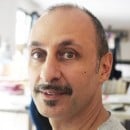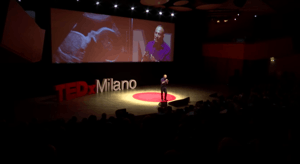Stefano Laffi has very critical, and very interesting, ideas about school education and the future of the young generations. Essentially, he says that we – adults, parents and teachers – do not see children and young people. We “overwrite” them according to our strict and pre-established standards.
This is a very serious prospective error, which leads us to neglect two fundamental matters of fact. The first is that for almost twenty years we have been living in a new century and in a new millennium, and that we are all sailing in unchartered waters. This means that, as parents, we are no longer the measure of our children: our basic experience as adults is not applicable to the new scenario, simply because it is no longer replicable in this age characterized by rapid and very profound changes.
And then – and this is where the second aspect comes into play – we have forgotten that from time immemorial adults have always put their faith in the younger generations. Only we are no longer doing so. As Laffi points out, the twentieth century was built on the ideas and discoveries of young people between 20 and 30 years old. Einstein was 26 when he published the famous article on the Theory of Relativity for the first time. And from the 1970s onwards, the most innovative and successful start-ups were founded by young people between 18 and 25 years old.
If you speak to young people today, you often hear phrases like “I don’t know what path to choose. I don’t know what I will do: I am afraid of the future”. And this is where alarm bells go off and where there is a need for deep reflection: “How is this possible, at a time of great development, in the age of the power of Eros, can they be afraid of reality and the future? How could we put a whole generation in that condition? We kept young people in exile, in captivity, instead of giving them real world tasks and responsibility. We must try to find room to let the youngsters in. If the world is already full, like a museum, there is no way in, there is no room for you”. Therefore, what is required is a radical change of paradigm. And this epochal revolution, which involves all of us, is a challenge that is won – or lost – in the field of education.
In Laffi’s opinion, our young people should no longer be trained as students to carry out prescribed tasks, but as pioneers, meaning that the frontiers of knowledge need to be pushed forward. As Gregory Bateson put it, we also have “to learn how to unlearn”. Young people must be trained to ask questions, not trained to answer them, like they do in school. And these questions must be meaningful or without answers that have already been given.
Laffi’s proposals are intertwined with the considerations developed in recent years by two important scholars: the historian Yuval Harari and the philosopher Edgar Morin.
According to Harari, in the twenty-first century world, the last thing that a teacher ought to give his/her students is more information. They already have enough. Instead, we all need, and young people primarily, to acquire the ability to make sense of information, to distinguish between what is important and what is barely relevant and, in particular, to learn how to put lots of information together within the general context of the world.
Therefore, what should we teach? Many experts recommend focusing on the four “Cs”: critical thinking, communication, collaboration and creativity. To Harari, all of this is fine, provided that it leads in the direction of building highly flexible minds and personalities: the most important thing is to develop the emotional intelligence of young people and to invest in people’s mental health, because the most difficult challenges that we all must face will be psychological.
And this is where Morin’s view comes in, who in his “Manifesto to change education” states: “You can teach how best to develop autonomy and, as Descartes would say, a method to steer your mind well, which allows you to personally deal with the problems of life. A regenerated education cannot change society alone. But it could form adults more capable of confronting their destiny, more capable of making their lives flourish, more capable of understanding human, historical, social and worldwide complexities, more capable of recognizing the errors and illusions of knowledge, more capable of understanding one another, more capable of dealing with uncertainties, more capable of dealing with life’s adventures”.
The new task of education, therefore, is to teach students to deal with risks and uncertainties, i.e. to teach them how to live.

